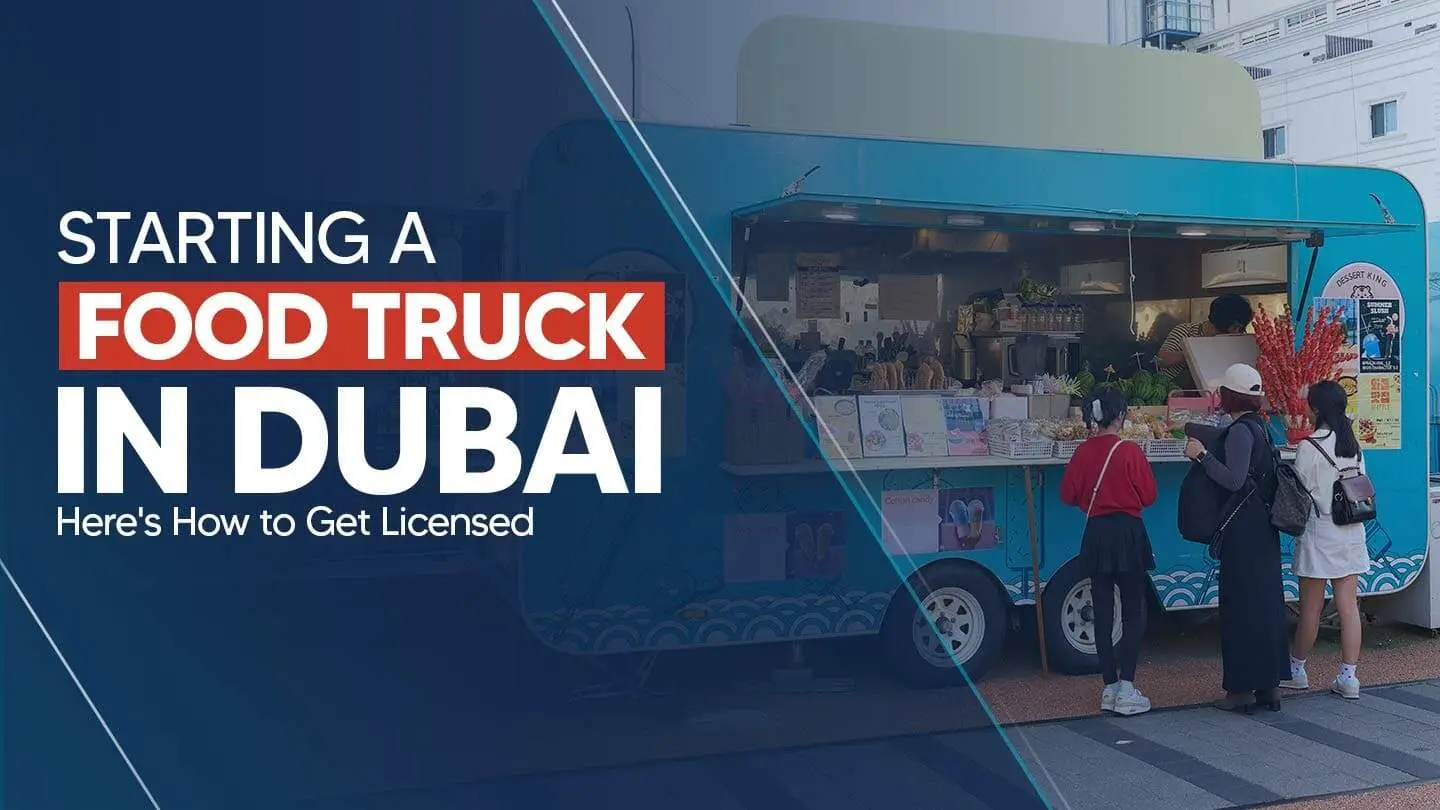Dubai is home to a buzzing restaurant scene, thanks to its diverse population and ever-growing tourism industry. From high-end dining spots to casual cafes, there’s always a demand for new and exciting food experiences. This makes Dubai a fantastic place to start your own restaurant and tap into a global audience.
One crucial aspect of running a restaurant in Dubai is registering your business with the Department of Economic Development (DED) and obtaining the necessary licenses and permits to operate legally. A restaurant license in Dubai is required to ensure that establishments comply with health and safety regulations and adhere to local business laws.
Without a proper license, restaurants risk facing fines, closure, or even legal action. Restaurant license cost in Dubai is also quite cheaper than other emirates in the UAE. However, you must ensure you meet the essential requirements set by concerned authorities.
Therefore, we’ll walk you through the process of getting a restaurant license in Dubai, so you can start building your dream business in one of the world’s most exciting cities.
Types of Restaurant License in Dubai
When opening a restaurant in Dubai, you’ll need to obtain specific licenses and permits.
Here are the main types:
Primary License
1. Trade License
This is the fundamental license required for any business in Dubai. It’s issued by the Department of Economic Development (DED) or a free zone authority.
2. Food Establishment License
Issued by the Dubai Municipality’s Food Safety Department, this license ensures your restaurant complies with health and safety regulations.
Additional License Requirements
3. Alcohol License (if applicable)
If you plan to serve alcohol, you’ll need a separate alcohol license. The requirements for this license vary depending on the type of alcohol you’ll be serving and the location of your restaurant.
4. Food Truck License
If you plan to operate a food truck in Dubai, you’ll need to obtain a specific food truck license. This license typically requires you to meet certain requirements, such as having a mobile kitchen that meets hygiene and safety standards.
5. Takeaway License
A takeaway license is required if your restaurant primarily focuses on providing food for takeout or delivery. This license ensures that your restaurant meets the necessary health and safety standards for food preparation and packaging. You may also need to comply with regulations related to food delivery services.
6. Sit-Down Restaurant License
A sit-down restaurant license is necessary if your restaurant offers dine-in services. This license permits you to operate a restaurant with tables and chairs where customers can eat on the premises.
It’s essential to consult with the Dubai Municipality or business setup experts like Shuraa for the most accurate and up-to-date information on specific license requirements.
Essential Documents and Requirements to Start a Restaurant in Dubai
To successfully establish a restaurant in Dubai, you’ll need to gather a comprehensive set of documents and fulfil certain requirements. This generally includes:
- Trade name registration certificate
- Passport copies of the business owners and managers
- Visas copies
- No Objection Certificate (NOC), if required
- Trade license application form
- Food safety and hygiene documents
- Health certificates
- Bank statements
- Tenancy contract
- Food Establishment license application form (Dubai Municipality)
The specific requirements and procedures may vary based on your business activity, so it’s advisable to consult with our local business setup advisor for accurate and up-to-date information.
How to Obtain a Restaurant License in Dubai
Once you’ve gathered the necessary documents and fulfilled the requirements, you can proceed with the application process for your restaurant license in Dubai. Here’s a step-by-step guide:
1. Choose a Business Location
Mainland: To run a business anywhere in Dubai, register with the Department of Economic Development (DED).
Free Zone: If you want to operate in a free zone, apply through the specific Free Zone Authority.
Your choice of location will determine the jurisdiction under which your license will fall.
2. Select a legal structure
Decide whether your restaurant will be a sole proprietorship, limited liability company (LLC), or other suitable option. Mainland LLC is the most popular option.
3. Register Restaurant Name
Choose a unique and memorable name for your restaurant. Ensure the trade name complies with Dubai’s naming guidelines (e.g., no religious or political references).
4. Secure a Commercial Space
Choose a physical location for your restaurant and ensure it meets Dubai Municipality’s health and safety regulations. Sign a lease agreement for the restaurant space and have the tenancy contract (Ejari) registered.
5. Submit the Restaurant License Application
Complete the required application forms and attach all supporting documents. Submit your application to the Department of Economic Development (DED) or the Free zone authority.
6. Pay the License Fees
After submitting your documents, you’ll need to pay the required fees for the restaurant license. Fees vary depending on the type of license (Mainland or Free Zone) and the scope of your business.
7. Obtain Food Safety and Health Approvals from Dubai Municipality
Submit your restaurant’s layout plans to Dubai Municipality for approval. These plans must include details about the kitchen, storage areas, and seating arrangements. You’ll need to follow food safety guidelines, which include proper hygiene, ventilation, and waste management systems.
8. Obtain Additional Permits (if needed)
Dubai Municipality will issue a food safety permit after conducting inspections to ensure your restaurant complies with health and safety standards. If your restaurant plans to serve alcohol, you’ll need a separate liquor license from the Dubai Police.
Depending on your business activity, you may need to obtain additional permits like outdoor seating permits, environmental clearance, etc.
9. Hire Employees
You’ll need to apply for work permits and residence visas for your employees through the Ministry of Human Resources and Emiratisation (MOHRE) and the General Directorate of Residency and Foreigners Affairs (GDRFA).
10. Receive the Final Restaurant License
Once all documents are approved, and fees are paid, you’ll receive your restaurant license. You can now legally operate your restaurant in Dubai.
What is the Cost of Restaurant License in Dubai?
The restaurant license cost in Dubai is typically around AED 10,000 to AED 25,000 (varies based on the size and location of the restaurant). Addition costs should also be taken into consideration such as:
- Food Safety Approval from Dubai Municipality
- Trade Name Registration fees
- Tenancy Contract (Ejari)
- Initial Approval Fees
- Office or Facility Rent
The cost of a restaurant license in Dubai can vary depending on several factors, including:
- Type of license: Food truck, takeaway, sit-down restaurant, or alcohol license.
- Size of the restaurant: The larger the restaurant, the higher the fees.
- Location: Fees may differ based on the location of your restaurant within Dubai.
- Additional permits: Costs for permits such as alcohol licenses or music licenses will add to the overall expense.
Dubai generally offers relatively affordable restaurant license costs compared to other major cities worldwide.
The government has implemented various initiatives to attract businesses and encourage entrepreneurship, including incentives for the food and beverage industry. These initiatives often involve reduced fees or streamlined processes for obtaining licenses, making it more cost-effective to start a restaurant in Dubai.
Food Code for Restaurant Setup in Dubai
The Dubai Municipality has specific food codes that restaurants must adhere to. These codes cover various aspects of food safety, hygiene, and quality. Here are some key food code requirements for restaurants in Dubai:
Hygiene and Sanitation
- Maintain a clean and sanitary environment in the kitchen, dining areas, and restrooms.
- Practice proper food handling techniques to prevent contamination.
- Regularly clean and disinfect equipment, utensils, and surfaces.
- Store food at appropriate temperatures to prevent spoilage.
Food Safety
- Use fresh and high-quality ingredients.
- Cook food to the correct internal temperatures to kill harmful bacteria.
- The store cooked food properly to prevent cross-contamination.
- Label food items with clear expiration dates.
Personnel Hygiene
- Require staff to maintain good personal hygiene, including washing their hands frequently and wearing clean uniforms.
- Provide training to staff on food safety practices.
Pest Control
- Implement effective pest control measures to prevent infestations.
- Regularly inspect the premises for signs of pests.
Waste Management
- Dispose of food waste and other waste properly.
- Ensure proper sanitation of garbage containers.
Specific requirements may vary depending on the type of restaurant and the nature of its operations.
Dubai Municipality conducts regular inspections of restaurants to verify compliance with food safety regulations. Non-compliance can result in fines, penalties, or even closure of the establishment.
Architectural Requirements for Opening a New Restaurant
Dubai’s architectural standards are high, and this extends to commercial establishments such as restaurants. Below are the key architectural requirements you need to follow:
- Ensure that the restaurant design and construction comply with all relevant building codes and regulations set by Dubai Municipality.
- The kitchen area should be at least 300 to 380 square feet depending on the size and type of restaurant.
- All kitchen walls, floors, and surfaces should be made from non-porous materials like stainless steel, tiles, or epoxy-coated materials to ensure easy cleaning and prevent bacterial growth.
- Kitchens must be equipped with proper exhaust fans and hoods to remove smoke, heat, and odors.
- A separate, well-ventilated area should be provided for storing dry goods. Shelves must be at least 15 cm off the ground to prevent contamination.
- Adequate refrigeration space is required to store perishable goods. Refrigerators and freezers should maintain the correct temperatures (5°C or below for refrigerators and -18°C or below for freezers).
- The restaurant must be equipped with fire extinguishers, especially in the kitchen area, where the risk of fire is higher.
- You must apply for a signboard permit to display your restaurant’s signage. The sign should be visible and comply with Dubai Municipality’s signage regulations.
Please note, the requirements may vary, it’s advisable to thoroughly understand the architectural requirements outlined by the Dubai Municipality.
How Shuraa Can Help
With Dubai’s growing appetite for diverse cuisines and its dynamic market, now is a great time to start your restaurant business. To make this exciting venture easier, let Shuraa Business Setup guide you through the process. We’re here to help with everything from company registration and understanding local regulations to getting your restaurant license and setting up your space.
Our experts will also assist you with securing the right location, handling visas, and all other essential tasks. With our support, you can focus on your passion for food while we take care of the details.
Reach out to Shuraa Business Setup today at +971 4 4081900, WhatsApp at +971 50 7775554, or [email protected].
Frequently Asked Questions
1. What is the difference between cafeteria license and restaurant license in Dubai?
A cafeteria License is typically used for smaller, self-service food establishments where customers choose their food and pay at a counter. Restaurant License is required for larger, full-service restaurants with table service and a more extensive menu.
2. What is the food code in Dubai?
The Dubai Municipality’s Food Safety Department (FSD) enforces strict food safety regulations. These regulations, often referred to as the “food code,” cover various aspects of food production, handling, storage, and service.
3. What are the requirements of opening a restaurant in Dubai?
To obtain a restaurant license, you’ll need to submit various documents, including:
- Company registration documents
- Business plan
- Financial statements
- Lease agreement
- Building approval
- Fire safety certificate
- Health and safety certificate
- Food safety plan
4. Can I transfer a restaurant license to a new location?
Yes, you can transfer a restaurant license to a new location, but you’ll need to obtain approval from the Dubai Municipality. There may be additional requirements or fees involved in the transfer process.
5. What is the cost of a restaurant license in Dubai?
The restaurant license cost in Dubai ranges between AED 10,000 to AED 25,000 but can vary depending on factors like the size of your restaurant, its location, and the type of cuisine you’ll be serving. While the exact fees can change over time, Dubai generally offers relatively affordable licensing costs compared to other major cities worldwide.







